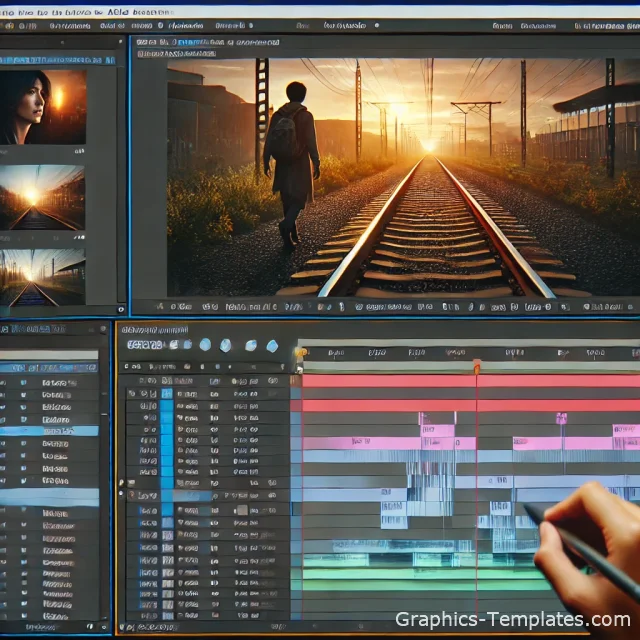Unreal Engine vs Unity: Which is Better for 3D Game Development in 2024?
Category:
Blog

When embarking on a 3D game development journey, selecting the right engine is paramount. In 2024, two titans stand at the forefront: Unreal Engine and Unity. Both engines are incredibly powerful, but the ideal choice depends on your specific needs, project size, and long-term goals. Let's dive deep into the differences, strengths, and weaknesses of both, and discover which engine reigns supreme this year.
Graphics and Visual Fidelity
When it comes to pure graphical prowess, Unreal Engine takes the crown. Known for its stunning, near-photorealistic visuals, Unreal Engine is widely used in **AAA games** like *Fortnite*, *Gears of War*, and *Bioshock*. The engine excels in producing breathtaking environments, detailed character models, and sophisticated lighting effects, especially with its integration of **real-time ray tracing**. If your goal is to create visually stunning, high-end 3D games, Unreal Engine is a top choice.
Unity, on the other hand, while improving significantly in recent years, still falls short in matching Unreal’s graphical fidelity. However, with tools like **HDRP (High Definition Render Pipeline)**, Unity can create highly polished visuals. But it requires more effort and manual tweaking to reach the same level of photorealism that Unreal offers out-of-the-box.
- Unreal Engine: Best for photorealism and high-end 3D graphics.
- Unity: Strong but requires more optimization for AAA-level graphics.
Performance and Optimization
Out-of-the-box performance is where Unreal Engine shines. Its foundation in **C++** provides the ability for high optimization, which is crucial when working on graphically intensive projects. Unreal is designed to handle larger, more complex scenes without requiring extensive manual adjustments. This makes it the go-to for AAA games or projects with heavy physics calculations and dense graphical content.
Unity, by contrast, runs on **C#**, which is much easier to learn and use but can be less performant compared to C++. For smaller or medium-sized 3D projects, Unity’s performance is more than adequate, but it may require manual optimization to match Unreal’s fluidity and power, especially when dealing with high-fidelity graphics or large scenes.
Ease of Use and Learning Curve
When it comes to learning how to use the engines, Unity is often praised for its intuitive interface and accessibility. It's widely regarded as the best engine for beginners, offering a smoother and quicker start for those without prior game development experience. Unity’s visual scripting tools, such as **Bolt** and **PlayMaker**, allow developers to build game logic without needing to dive into code. Its community is large and active, providing vast amounts of resources, tutorials, and support.
Unreal Engine, while offering its own powerful visual scripting tool called **Blueprints**, presents a steeper learning curve. The sheer number of features and depth of control can be overwhelming for newcomers. However, for developers willing to invest the time, mastering Unreal pays off with access to advanced tools for crafting intricate mechanics and systems. Blueprints, when combined with C++, offer unparalleled control and flexibility.
- Unity: Easier to learn and more accessible for beginners.
- Unreal Engine: Steeper learning curve but more advanced features.
Supported Platforms and Ecosystem
Unity leads the industry in terms of platform support, offering native export options for over **25 platforms**, including iOS, Android, Windows, macOS, and consoles like PlayStation, Xbox, and Nintendo Switch. This extensive support is why Unity is often chosen for multi-platform projects. Unity is also a strong contender in the **AR/VR** space, with its built-in tools for these platforms being highly adaptable and user-friendly.
Unreal Engine, while more focused on **high-end platforms**, excels when it comes to console and PC development. The engine’s native support for **real-time ray tracing** on systems like PS5 and Xbox Series X makes it the top choice for developers targeting these platforms. For VR development, Unreal offers a more advanced toolset, producing higher-quality VR experiences, but at the cost of requiring more powerful hardware.
Asset Stores and Resources
Both engines come with vast marketplaces where developers can purchase or download assets to speed up development.
- Unity Asset Store: Offers a wider variety of assets, including many community-created items. While the quality can vary, Unity’s store boasts an impressive selection, with plenty of free assets for indie developers and smaller projects.
- Unreal Engine Marketplace: Though smaller in size, Unreal’s marketplace offers professional-grade assets. Its stricter quality control ensures that assets are optimized and meet high standards, making them perfect for AAA development.
Licensing and Cost
Licensing can be a crucial factor, especially for indie developers. Unity offers a free version with some limitations. For more advanced features, developers need to subscribe to **Unity Pro**, which costs around $75 per month. Unity’s licensing model is predictable and works well for smaller studios or indie developers who want to avoid backend fees.
Unreal Engine, on the other hand, is free to use until your game earns more than $1 million in revenue, at which point a **5% royalty** kicks in. While this model might seem intimidating, it can be more cost-effective for developers of large-scale games who want access to Unreal’s high-end tools without upfront subscription costs.
Industry Adoption and Use Cases
When it comes to industry adoption, both engines dominate specific areas. Unreal Engine is the go-to for **AAA studios** and large-scale productions requiring **high-end graphics**, realistic lighting, and large, complex environments. It’s also heavily used in the film and architecture industries, where its ability to render photorealistic scenes is invaluable.
Unity, conversely, is the engine of choice for **indie developers**, mobile game creators, and AR/VR projects. Its flexible licensing, ease of use, and wide range of platform support make it highly accessible. Unity has been used to create popular games like *Pokémon Go*, *Monument Valley*, and *Hearthstone*.

Conclusion: Which Engine to Choose in 2024?
In 2024, the choice between Unreal Engine and Unity depends largely on the scope and goals of your project.
- If you're aiming for **photorealistic visuals**, developing a **AAA game**, or need access to the most advanced graphical tools available, Unreal Engine is your best bet. Its power, flexibility, and ability to deliver top-tier performance make it unbeatable for high-end projects.
- However, if you're an **indie developer**, focused on **multi-platform support**, or need a more accessible tool with a faster learning curve, Unity is the ideal choice. Its extensive documentation, active community, and ease of use allow for quick development and deployment, especially for mobile or AR/VR games.
Ultimately, both engines are extraordinary in their own right, and the right choice depends on your individual needs, experience level, and project goals. Whatever engine you choose, 2024 promises to be an exciting year for 3D game development, with both Unreal Engine and Unity pushing the boundaries of what’s possible in the gaming world.
Stop, stop... Don't forget to visit our free game assets section - there you can download hundreds of 2D and 3D files for your game projects. We also have a category with quality PBR textures (link), as well as an extensive section with free 3D models (check here). We offer a ton of content to help you kickstart your game projects and inspire you to create new virtual worlds!
Add




